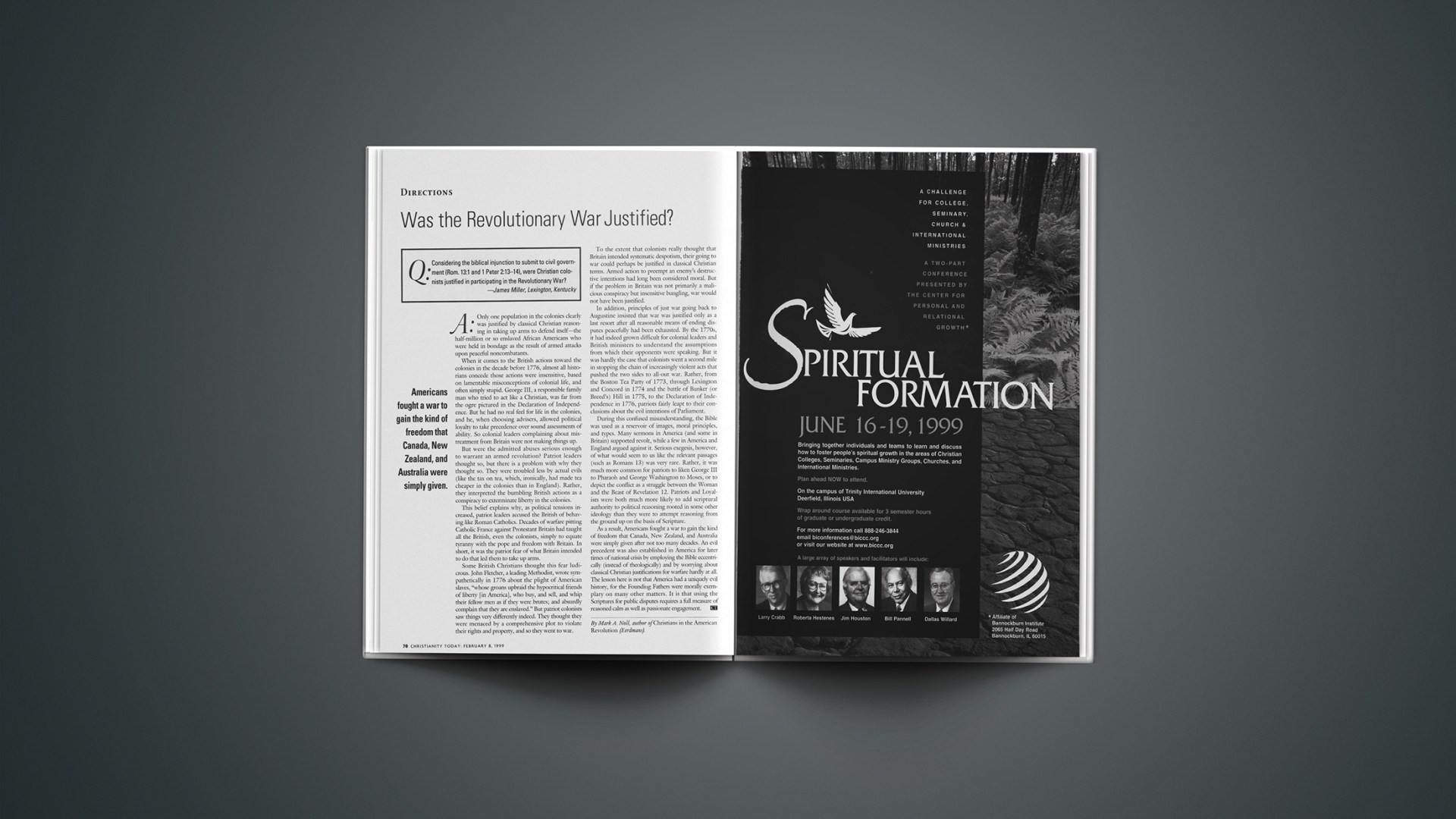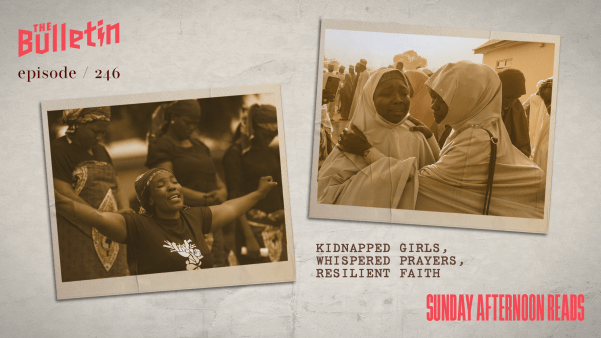Q: Considering the biblical injunction to submit to civil government (Rom. 13:1 and 1 Peter 2:13-14), were Christian colonists justified in participating in the Revolutionary War?
—James Miller, Lexington, Kentucky
A:Only one population in the colonies clearly was justified by classical Christian reasoning in taking up arms to defend itself—the half-million or so enslaved African Americans who were held in bondage as the result of armed attacks upon peaceful noncombatants.
When it comes to the British actions toward the colonies in the decade before 1776, almost all historians concede those actions were insensitive, based on lamentable misconceptions of colonial life, and often simply stupid. George III, a responsible family man who tried to act like a Christian, was far from the ogre pictured in the Declaration of Independence. But he had no real feel for life in the colonies, and he, when choosing advisers, allowed political loyalty to take precedence over sound assessments of ability. So colonial leaders complaining about mistreatment from Britain were not making things up.
But were the admitted abuses serious enough to warrant an armed revolution? Patriot leaders thought so, but there is a problem with why they thought so. They were troubled less by actual evils (like the tax on tea, which, ironically, had made tea cheaper in the colonies than in England). Rather, they interpreted the bumbling British actions as a conspiracy to exterminate liberty in the colonies.
This belief explains why, as political tensions increased, patriot leaders accused the British of behaving like Roman Catholics. Decades of warfare pitting Catholic France against Protestant Britain had taught all the British, even the colonists, simply to equate tyranny with the pope and freedom with Britain. In short, it was the patriot fear of what Britain intended to do that led them to take up arms.
Some British Christians thought this fear ludicrous. John Fletcher, a leading Methodist, wrote sympathetically in 1776 about the plight of American slaves, "whose groans upbraid the hypocritical friends of liberty [in America], who buy, and sell, and whip their fellow men as if they were brutes; and absurdly complain that they are enslaved." But patriot colonists saw things very differently indeed. They thought they were menaced by a comprehensive plot to violate their rights and property, and so they went to war.
To the extent that colonists really thought that Britain intended systematic despotism, their going to war could perhaps be justified in classical Christian terms. Armed action to preempt an enemy's destructive intentions had long been considered moral. But if the problem in Britain was not primarily a malicious conspiracy but insensitive bungling, war would not have been justified.
In addition, principles of just war going back to Augustine insisted that war was justified only as a last resort after all reasonable means of ending disputes peacefully had been exhausted. By the 1770s, it had indeed grown difficult for colonial leaders and British ministers to understand the assumptions from which their opponents were speaking. But it was hardly the case that colonists went a second mile in stopping the chain of increasingly violent acts that pushed the two sides to all-out war. Rather, from the Boston Tea Party of 1773, through Lexington and Concord in 1774 and the battle of Bunker (or Breed's) Hill in 1775, to the Declaration of Independence in 1776, patriots fairly leapt to their conclusions about the evil intentions of Parliament.
During this confused misunderstanding, the Bible was used as a reservoir of images, moral principles, and types. Many sermons in America (and some in Britain) supported revolt, while a few in America and England argued against it. Serious exegesis, however, of what would seem to us like the relevant passages (such as Romans 13) was very rare. Rather, it was much more common for patriots to liken George III to Pharaoh and George Washington to Moses, or to depict the conflict as a struggle between the Woman and the Beast of Revelation 12. Patriots and Loyalists were both much more likely to add scriptural authority to political reasoning rooted in some other ideology than they were to attempt reasoning from the ground up on the basis of Scripture.
As a result, Americans fought a war to gain the kind of freedom that Canada, New Zealand, and Australia were simply given after not too many decades. An evil precedent was also established in America for later times of national crisis by employing the Bible eccentrically (instead of theologically) and by worrying about classical Christian justifications for warfare hardly at all. The lesson here is not that America had a uniquely evil history, for the Founding Fathers were morally exemplary on many other matters. It is that using the Scriptures for public disputes requires a full measure of reasoned calm as well as passionate engagement.
By Mark A. Noll, author of Christians in the American Revolution (Eerdmans).
Copyright © 1999 Christianity Today. Click for reprint information.










